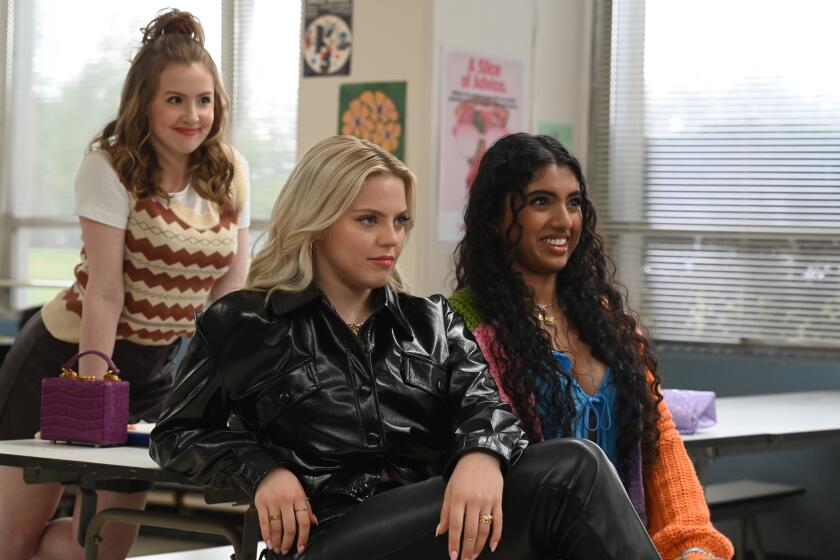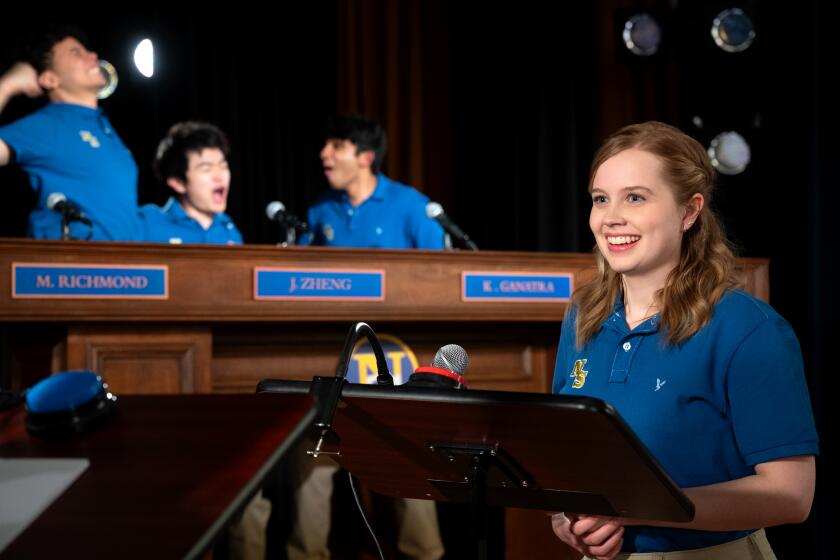Commentary: The new ‘Mean Girls’ isn’t perfect. But it’s justice for Janis
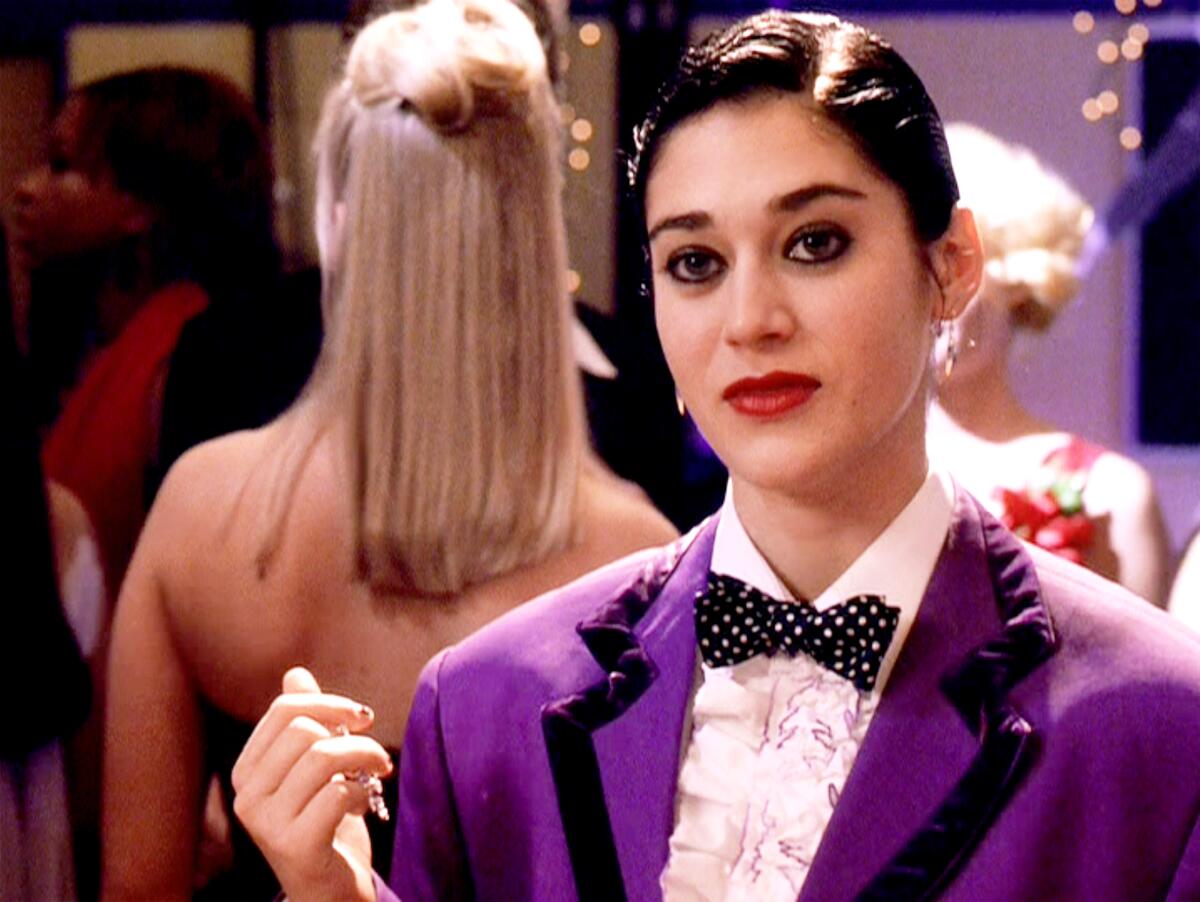
- Share via
While the new “Mean Girls” movie includes many, many punchlines from the first film, recited verbatim, devout fans will clock plenty of changes. Bullying, once the province of three-way calling on landlines, now occurs on social media. Gone are the misguided Asian jokes, the sizeism slander, the ableist language and the whole pedophilia plot. And no, the cafeteria cliques aren’t categorized by racist stereotypes.
“Sometimes you write something and 20 years go by and you go, ‘Oh, I wish maybe we hadn’t said that,’” Tina Fey, who wrote both screenplays, said in a “Today” interview. “And what a gift to be able to open the hood and fix things up a bit.”
Whether updated for contemporary sensitivities or to acknowledge two decades have passed since the first movie’s release, most of these tweaks are as cosmetic as the millennial-to-Gen Z costume changes. But the one drastic alteration in the Paramount musical turns out to be its most meaningful, a model for future onscreen reimaginings of retrograde material: the overdue overhaul of Janis Ian.
Not even strong performances by Reneé Rapp and Auli’i Cravalho can breathe sufficient life into this fan-servicing farrago.
In the 2004 version, Janis (Lizzy Caplan), wearing grunge outfits and thick black eyeliner, is introduced as an acerbic, art-loving rebel who has been socially ostracized by Regina George. The former best friends fell out after Regina started a rumor that Janis was a lesbian, accused her of being obsessively in love with her and refused to invite her to a pool party because there would be other girls there. In bathing suits.
Janis’ entry in the “Burn Book” her bullies use to tear apart their underlings on the social ladder simply labels her with a slur — one presented in the film as the most brutal comment imaginable about a female student. Newcomer Cady Heron, desperate to stay in the good graces of these popular “Plastics,” later betrays her erstwhile friend Janis by weaponizing the rumor: She too accuses Janis of being in love with her, and Regina reinforces it when she tells their fellow classmates Janis’ “dream come true” is “diving into a big pile of girls.”
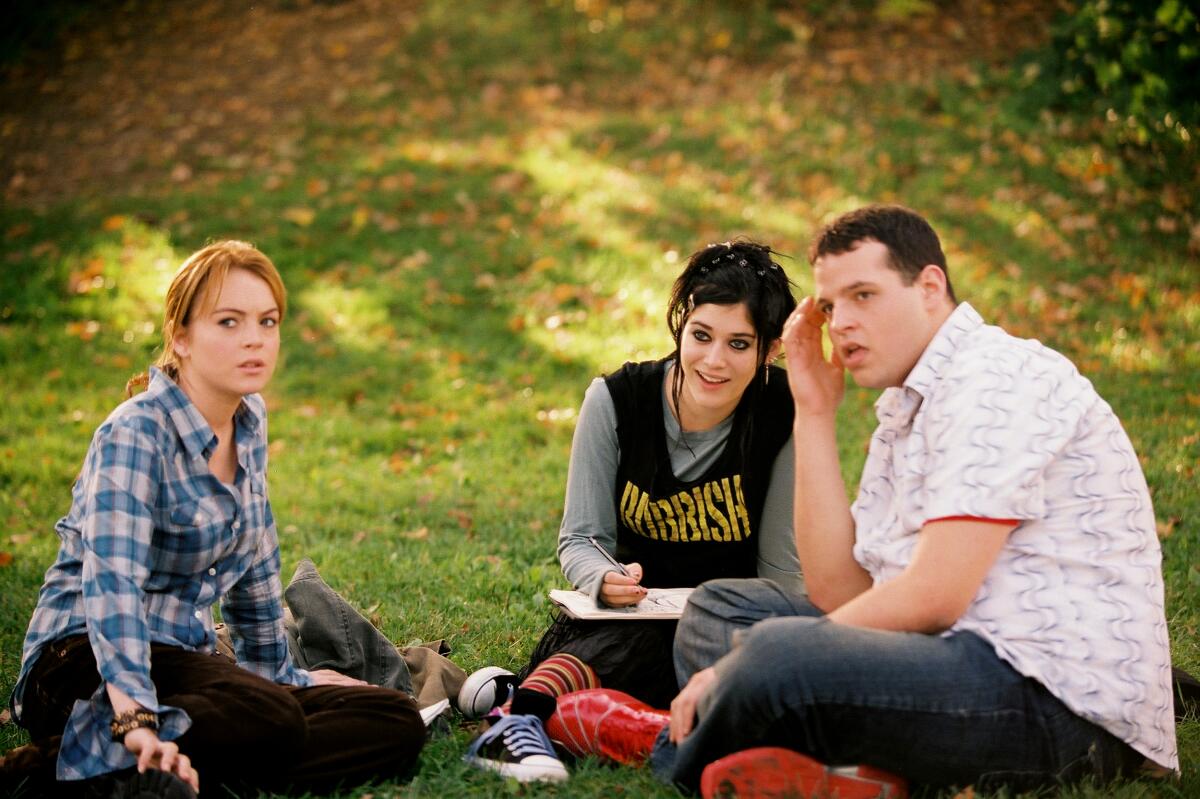
Fast-forward 20 years and Janis Ian has become Janis ‘Imi’ike, played by Auli’i Cravalho, and she is now actually queer — instead of being saddled with a last-minute heterosexual pairing with a male mathlete. And in a particularly satisfying twist, she’s also the new movie’s narrator, along with the other out queer character, her best friend Damian (Jaquel Spivey).
This time, Janis isn’t bullied because of her sexual orientation. In fact, Regina, to whom Janis had come out privately when they were still close, attempted to use it to her advantage, putting on “a show” with Janis during a game of Spin the Bottle to make a boy jealous — and then disclaiming her own interest by saying, “I knew she would let me. She’s, like, obsessed with me.”
In the fallout, we learn, Regina began describing Janis as an “obsessed lesbian” to their classmates — leading, ultimately, to a science-lab incident that got Janis kicked out of school and permanently labeled a weirdo, or worse. “Regina had been making fun of Janis this entire time and everyone but her knew it,” explains Damian. To the adults, he says, “Janis just seemed crazy.”
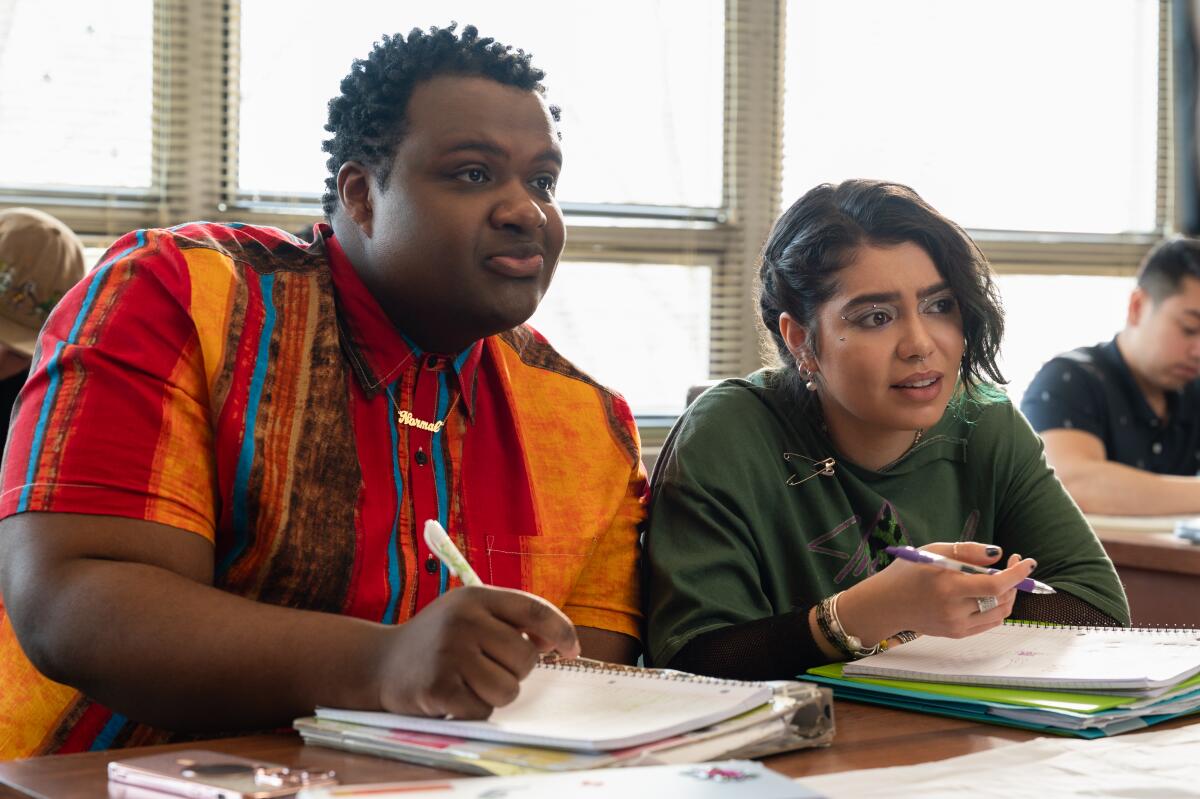
Janis’ new characterization as an out queer woman of color — one whose sexual orientation, rumored or otherwise, isn’t weaponized against her by her classmates — is most effective in an iconic scene from the original: the apology exercise, in which math teacher Ms. Norbury (Fey) challenges female members of the student body to admit their part in perpetuating the “mean girl” behavior that has exploded on campus.
Though Regina tries to humiliate Janis ahead of her turn — it is “Mean Girls,” after all — it’s not for her queerness. The moment is a far cry from the first movie, in which Janis responds to Regina’s homophobic taunt by bitterly joking about her “big lesbian crush.”
Most importantly, the new film then turns this revised understanding of Janis into its defining musical number, one that underscores a new generation’s social ecosystem: Janis can be queer without letting it define her; her queerness might inflect her rejection by the Plastics but definitely no longer drives it.
The new movie musical version of ‘Mean Girls,’ in theaters Friday, is chock-full of references to the 2004 original. But one stands head and shoulders above the others.
In this version of the scene, she stares directly into the camera to sing “I’d Rather Be Me,” an anthemic showstopper by composer Jeff Richmond and lyricist Nell Benjamin in which Janis calls out the insidious, unspoken ways in which women deceive and undercut each other for their own gain, and unapologetically opts out of such mutually destructive efforts in the future:
We’re supposed to all be ladies and be nurturing and care
Is that really fair? Boys get to fight, we have to share
Here’s the way that that turns out: We always understand
How to slap someone down with our underhand
So here’s my right finger to how girls should behave
’Cause sometimes what’s meant to break you just makes you brave
So I will not act all innocent, I won’t fake apologize
Let’s just fight and then make up, not tell these lies
Let’s call our damage even, clean the slate ’til it’s like new
It’s a new life for me where I’d rather be me
I’d rather be me than be with you

It’s cinematic justice for a character previously maligned for the sake of a joke (the original Regina simply mistook “Lebanese” for “lesbian”). And in a remake so packed with cameos and callbacks to the first film, the overhaul of Janis is the only major update made to “Mean Girls” that seems especially attuned to today’s high schoolers — teens who are more accepting of diverse sexual orientations, racial/ethnic backgrounds and other forms of difference — than those of 2004.
So many adaptations of once-beloved stories fall flat with new viewers because they’re held down by outdated setups and cringe-worthy punchlines that previously played without protest. Sure, old-schoolers might say such choices are made to check politically correct boxes or lessen the likelihood of a widespread cancellation. (Although the cuts made from both the original and the stage show suggest there was some of that done too.) This “Mean Girls” is proof that such changes needn’t be about sanitizing a script so much as freshening it up, retaining the drama of familiar social dynamics while updating the social mores that change over time.
As Regina George actor Reneé Rapp sings in her end credits track — with Janis and her femme date shown dancing at the Spring Fling — “Can a gay girl get an amen?”
It only took 20 years, but finally, she can.
‘Mean Girls: The Musical’
Rating: PG-13, for sexual material, strong language and teen drinking
Running time: 1 hour, 52 minutes
Playing: In theaters nationwide
More to Read
Only good movies
Get the Indie Focus newsletter, Mark Olsen's weekly guide to the world of cinema.
You may occasionally receive promotional content from the Los Angeles Times.
